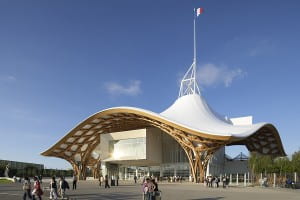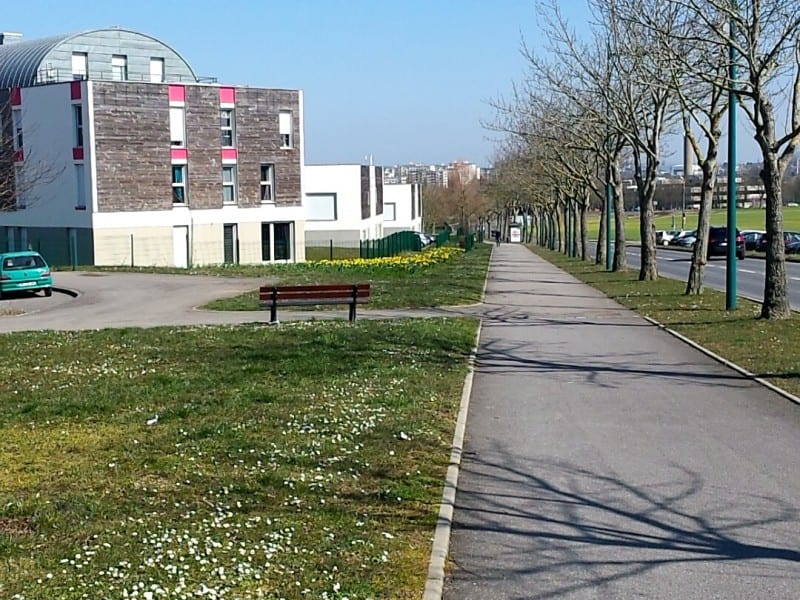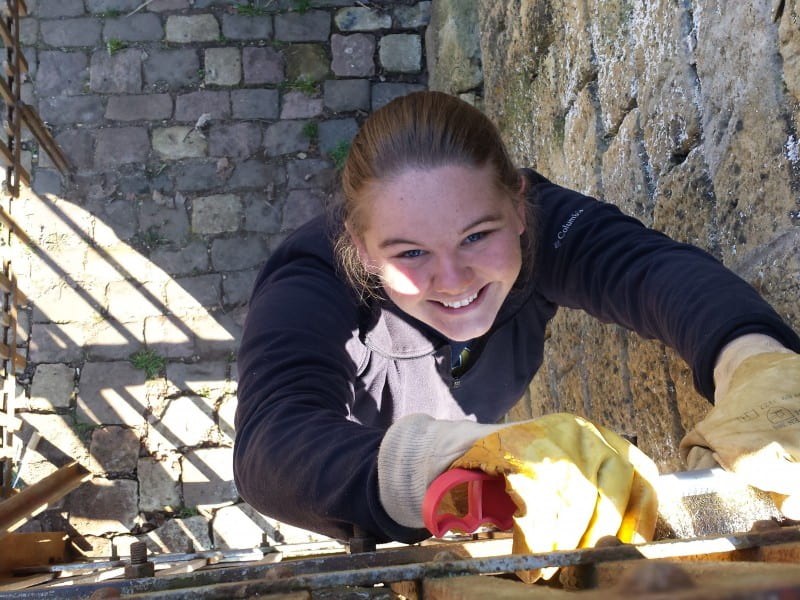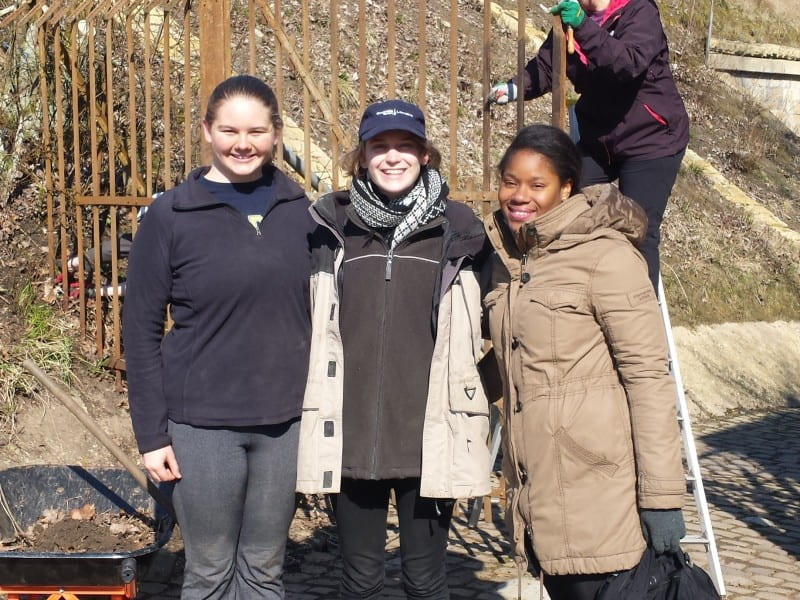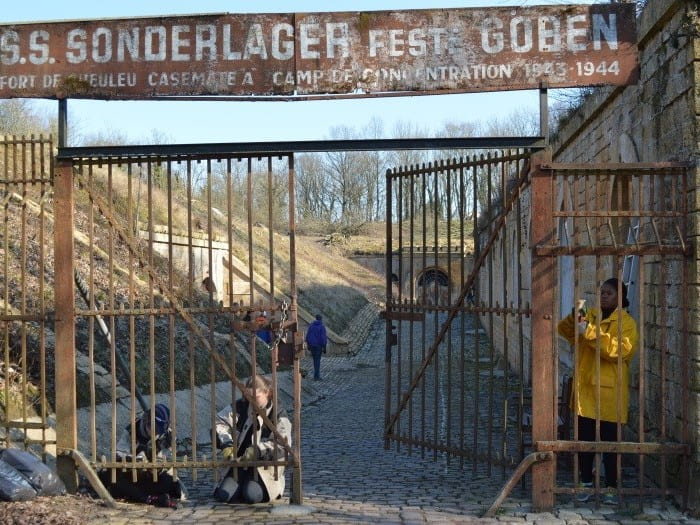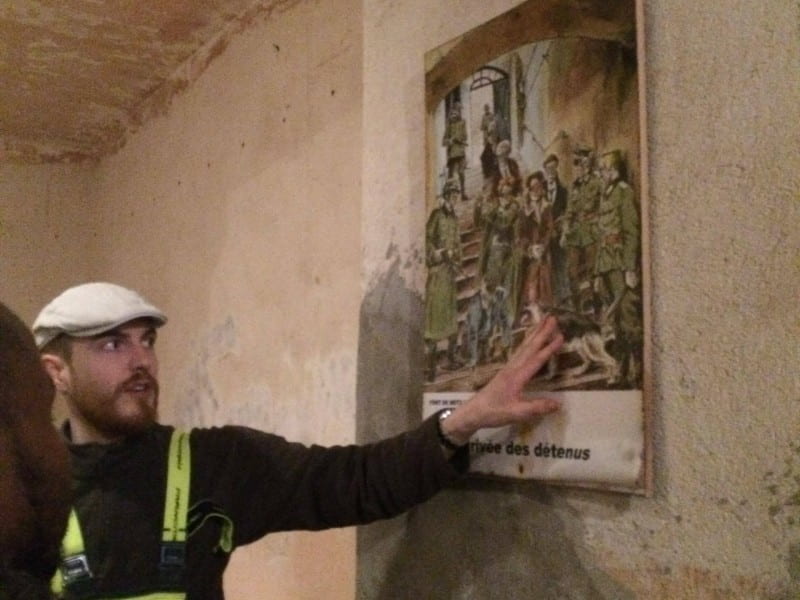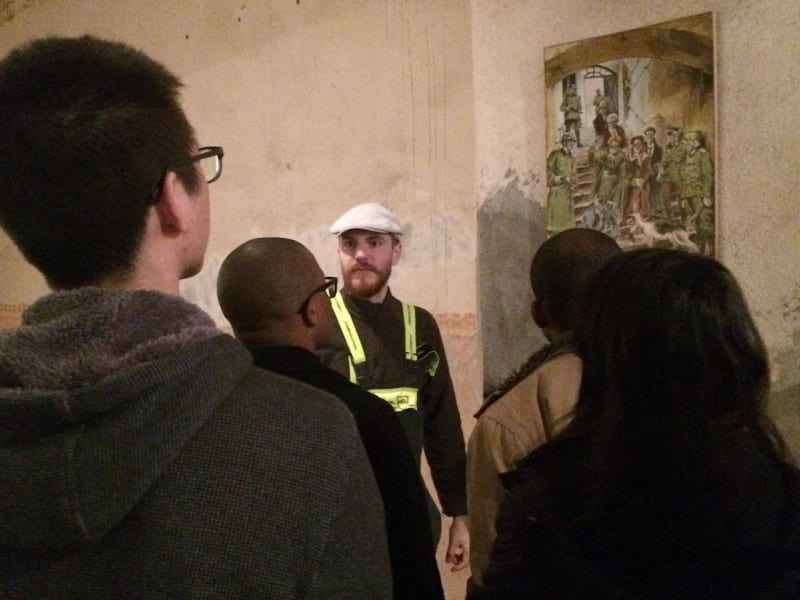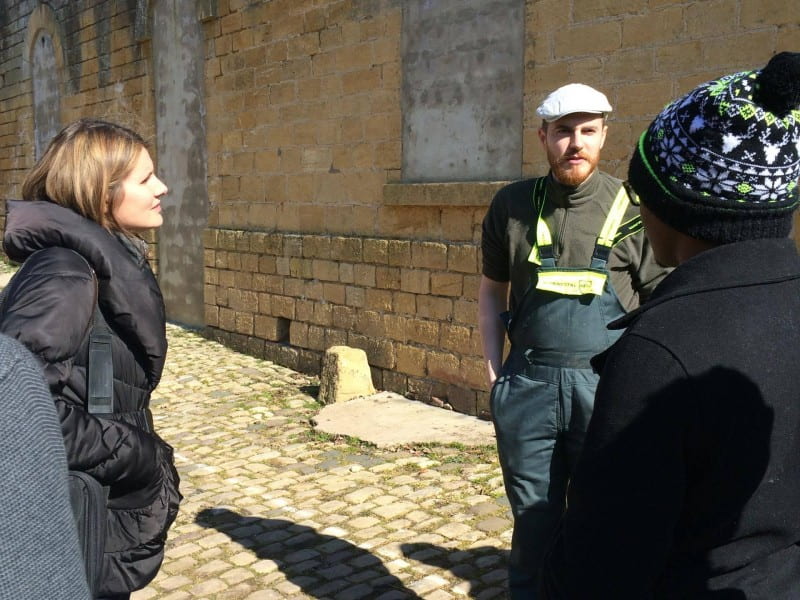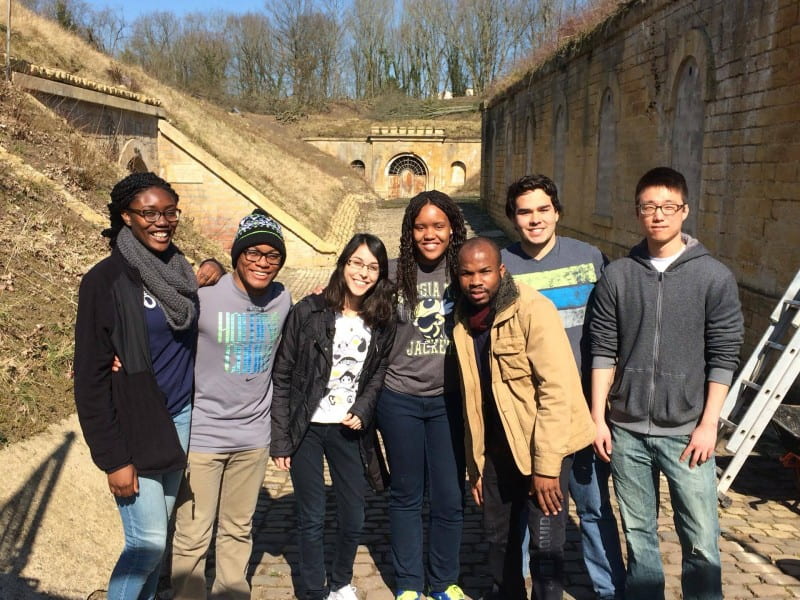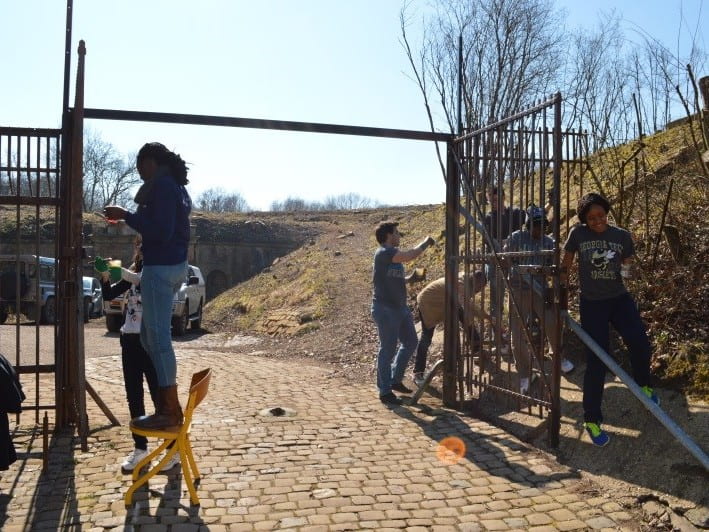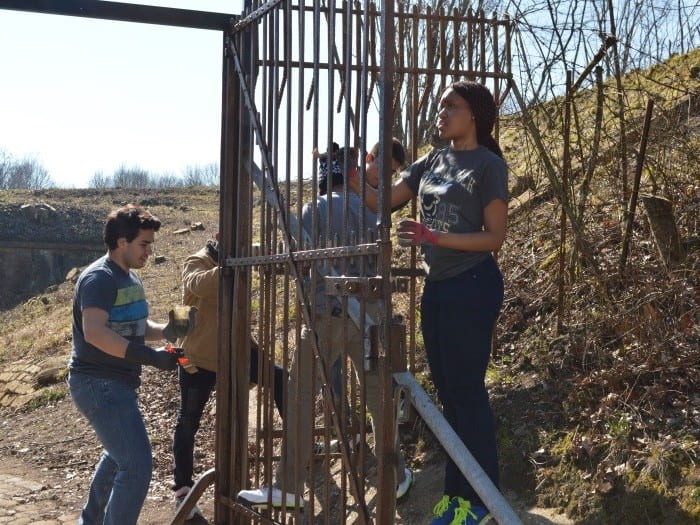Posted by Julie
At this point, we are well over halfway through the semester. We’re about two and a half months older, and quite a bit wiser. We aren’t sages yet, but we do have some thoughts about how we would have approached this semester and what we would have done differently. So, for all those planning on coming to Georgia Tech-Lorraine, or even for those just generally traveling, here’s our thoughts on traveling, Europe, Georgia Tech-Lorraine, and travelling Europe at Georgia Tech-Lorraine.
Don’t worry so much about things not going as planned. Things end up working out in the end. – Jessica
Jessica’s advice holds true for j ust about any experience, but especially for travel: there will always be something that doesn’t go as planned, but honestly? There’s no need to overly stress. We have lots of opportunity to travel, and the rules at Georgia Tech-Lorraine allow for a certain flexibility, so if your train gets stuck in Frau, Austria, generally it’s fixable. Also, I’ve found, personally, that when things don’t go as planned – that’s when the magic happens. Those are the memories you’ll keep. (Like wandering around Naples at 10pm with your friends to find that one pizza restaurant that guy in Rome recommended. Totally worth it, by the way.)
ust about any experience, but especially for travel: there will always be something that doesn’t go as planned, but honestly? There’s no need to overly stress. We have lots of opportunity to travel, and the rules at Georgia Tech-Lorraine allow for a certain flexibility, so if your train gets stuck in Frau, Austria, generally it’s fixable. Also, I’ve found, personally, that when things don’t go as planned – that’s when the magic happens. Those are the memories you’ll keep. (Like wandering around Naples at 10pm with your friends to find that one pizza restaurant that guy in Rome recommended. Totally worth it, by the way.)
Interact with the students around you – especially the French ones – more. – Joy
All I remember about our first orientation meeting is my extreme skepticism toward one statement made by Ms. Bass: “GTL students become like a community.
toward one statement made by Ms. Bass: “GTL students become like a community.
You will know everyone, and you will probably be friends with most everyone.” 200 students, and I’m going to be friends with all of them? Riiight. But it’s not so far from the truth. Between classes, activities with the BDE, mutual friends, the Universal GroupMe, or just walking up to someone in the student lounge, there are many ways to meet people. You just have to go for it. All the people here are in the same boat as you, and really, most of them don’t bite. Ask to borrow sewing kits, where to eat downtown, and people to travel with for the weekend, and you’ll generally find a friend.



Spend a little more time planning out your travels. – David, Pranav, Ije
This was quite a popular remark. People come with grand dreams, but realize there are some realities to study abroad, train travel, and the limits of mortality. It does help to plan out where exactly you’d like to go, and prioritize your dreams, but be aware that if you want to travel with others (which I highly recommend), sometimes there will be curveballs.
Don’t just follow other people when choosing where to travel. – Indiana
This follows the last one pretty closely. Define your dreams, try to travel with others and make friends, but don’t limit yourself to what others want to do solely because all of your friends are going somewhere else. People have realized throughout the course of the semester that cities aren’t nearly as interesting as adventuring and hiking, or maybe Italy was not everything it’s cracked up to be. Form your own opinions and pursue them.
Budget anything and everything. – AJ
A basic, but vital necessity. Fall semester, I made a massive spreadsheet, detailing fees, tuition, food, trains, activities, and any other thing for which it is possible to spend money. There was extensive research: I frequented the Georgia Tech-Lorraine page, but researched on train ticket websites, travel blogs, packing lists, and more. There is more to living abroad than one might realize, and it is necessary to consider all possibilities. (Including, dare I say it, nightlife, for those legal and willing.) It’s easy to spend way too much, but if you have a form laid out, you can see what steps you need to take so you aren’t high and dry and begging your parents for money at the end of the semester.
Branch out and do new things despite  the cost. – Sienna
the cost. – Sienna
Now, we’ve been responsible; we’ve budgeted for our trips. However, that being said, if something really compels you, and you know you’d regret it later on, DO IT. #majorkey

 1. Spaghetti: All you need are two basic ingredients: Noodles and spaghetti sauce (meatballs optional). Boil your noodles in 5-10 minutes on the stove, warm up a pre-prepared spaghetti sauce, and voilà…you have yourself a meal. If you really want to channel your inner chef, try throwing in some seasoning and parmesan cheese. (Suggestions: Panzani spaghetti noodles and tomato pesto, Auchan brand)
1. Spaghetti: All you need are two basic ingredients: Noodles and spaghetti sauce (meatballs optional). Boil your noodles in 5-10 minutes on the stove, warm up a pre-prepared spaghetti sauce, and voilà…you have yourself a meal. If you really want to channel your inner chef, try throwing in some seasoning and parmesan cheese. (Suggestions: Panzani spaghetti noodles and tomato pesto, Auchan brand) 2. Sandwiches: After a couple of months your meals may start to feel somewhat repetitive, and that’s where the sandwich comes in. Possible ingredients include tomatoes, cheese, lettuce, mayonnaise, mustard, ham, chicken, etc. There are endless combinations to choose from. Even bigger plus: buy a bag of zip-locks and sandwiches become the perfect to-go meal.
2. Sandwiches: After a couple of months your meals may start to feel somewhat repetitive, and that’s where the sandwich comes in. Possible ingredients include tomatoes, cheese, lettuce, mayonnaise, mustard, ham, chicken, etc. There are endless combinations to choose from. Even bigger plus: buy a bag of zip-locks and sandwiches become the perfect to-go meal. 3. Potatoes/French Fries: Who doesn’t like potatoes? Head to the freezer section of Simply or Cora and you’ll find potatoes cut in virtually every shape and size. Throw some oil and butter on a pan and warm them on your stove for about 10-15 minutes. Eat as a side dish or even a main meal. Optional: Season with basil, garlic, salt, and/or black pepper. (Suggestion: ‘Pommes Rissolées’, Auchan brand)
3. Potatoes/French Fries: Who doesn’t like potatoes? Head to the freezer section of Simply or Cora and you’ll find potatoes cut in virtually every shape and size. Throw some oil and butter on a pan and warm them on your stove for about 10-15 minutes. Eat as a side dish or even a main meal. Optional: Season with basil, garlic, salt, and/or black pepper. (Suggestion: ‘Pommes Rissolées’, Auchan brand) exam. Buy a large carton of milk to last multiple meals. Keep in mind that most French milk is not pasteurized, and the taste is slightly different from what we’re used to back home. While you won’t find the exact same cereal brands, you’ll find very similar ones, for example, Kellogg’s Frosties.
exam. Buy a large carton of milk to last multiple meals. Keep in mind that most French milk is not pasteurized, and the taste is slightly different from what we’re used to back home. While you won’t find the exact same cereal brands, you’ll find very similar ones, for example, Kellogg’s Frosties.



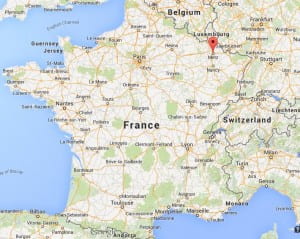 It is a cultural, commercial, and transportation center of Lorraine, an industrial city producing metals, machinery, tobacco, clothing, and food products, and the home of one of France’s largest military bases.
It is a cultural, commercial, and transportation center of Lorraine, an industrial city producing metals, machinery, tobacco, clothing, and food products, and the home of one of France’s largest military bases. During the German annexation of E Lorraine (1871–1918), Metz, largely French-speaking, was a center of pro-French sentiment. During World War II the city suffered greatly under German occupation.
During the German annexation of E Lorraine (1871–1918), Metz, largely French-speaking, was a center of pro-French sentiment. During World War II the city suffered greatly under German occupation.
